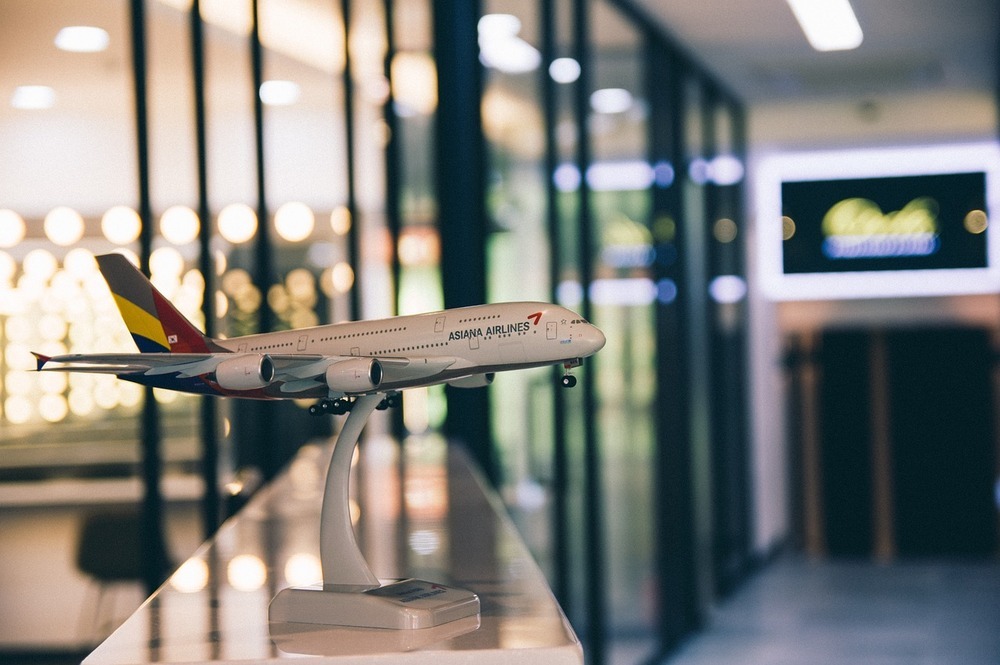Knowing your rights as a passenger is extremely important for ensuring a comfortable and safe journey. Delays, flight cancellations, baggage issues, or poor service can ruin your plans and mood. However, you can get results if you know how to complain to an airline and get results.
This article describes the procedures for submitting a formal complaint against an airline.
We’re well aware that knowing your rights allows you to interact more effectively with airlines, reducing stress and frustration. You can resolve disputes faster and more easily without wasting time and nerves.
Additionally, awareness of your rights helps improve the quality of service in the aviation industry, as airlines are forced to adhere to standards knowing that passengers are educated about their legal possibilities. Finally, we’ll help you discover your legal options during airline disputes, including how to sue an airline and win if needed. Kindly read along.

Knowing Your Rights Is the Key to a Successfully Resolved Complaint
Knowledge is power when it comes to effectively complaining to an airline and getting results. The first step in understanding how to lodge a formal complaint against an airline and, if necessary, how to sue an airline and win is to be aware of your rights as a passenger. The rights and obligations of passengers and airlines are delineated in a set of regulations developed by the U.S. Department of Transportation (DOT). These regulations cover Numerous topics, such as denied boarding, lost or damaged baggage, delays and cancellations of flights, and more.
The Department of Transportation (DOT) requires airlines to inform passengers of their rights and procedures in the event of a flight delay or cancellation. The Airline Deregulation Act of 1978 further safeguards passengers’ rights by outlawing unfair acts and enabling them to take legal action if their rights are violated.
Keep a record of every travel-related incident, including correspondence with the airline and any letters of complaint. This is essential if you want to take legal action or escalate the issue. If the airline doesn’t respond, you should look into alternative possibilities, such as formally complaining to the DOT or getting legal advice to find out how to sue an airline successfully. Comprehending the legal framework and your rights as a passenger in the airline business is essential to addressing grievances and guaranteeing equitable treatment. Remain vigilant, follow through, and handle situations as needed
U.S. Department of Transportation (DOT) Regulations
Understanding your air passenger rights is key when dealing with flight disruptions, baggage issues, or service complaints. The DOT’s regulations ensure that you receive fair treatment, compensation, and assistance in cases of delays, cancellations, or denied boarding. Being aware of these rights, especially during incidents involving tarmac delays or lost luggage, can help you navigate the complaint process more confidently and ensure you receive the support and compensation you’re entitled to as a passenger.
1. Flight Delays and Cancellations
The U.S. Department of Transportation (DOT) requires airlines to pay passengers for significant delays or cancellations caused by the airline. In cases of delays that exceed a certain period of time, airlines are obliged to give food, lodging, and free ground-to-ground communication services to the waiting passengers. The compensation for delays can be in the form of repayments, rebooking on the nearest flight or providing travel vouchers for future use, considering the conditions and airlines’ policy.
2. Denied Boarding (Overbooking)
Airlines must reimburse passengers who are denied boarding either because of overbooking or overselling situations as long as they hold a valid ticket and they comply with the other airline’s requirements. The amount of the compensation depends on the length of the delay in the final destination and the cost of the ticket. Airlines should look for willing volunteers who can be paid to occupy them first before forced removal from the queue.
3. Baggage Issues
Airlines have the obligation of compensating the passengers for the lost, damaged, or significantly delayed baggage. The DOT has determined limited liability for domestic and international flights, which define the maximum compensation allowed to baggage claims. To get compensated, the passengers have to file a claim with the airline within a specific time period. They also need to submit the necessary documents like receipts and proof of ownership to support their claim.
4. Tarmac Delays
The DOT’s Tarmac Delay Regulation forces the airlines to provide the passengers with food, water, and access to the lavatory during long tarmac delays. For domestic flights, airlines have to give the passengers the chance to get off the plane after a 3-hour tarmac delay, and for international flights, after a 4-hour one. The airlines that will be fined a lot of money for infringing the Tarmac Delay Rule will give the people the source of the comfort they need and ensure their safety during tarmac ground delays.
Steps to Prepare for Filing an Airline Complaint

Before you file an airline complaint, it’s essential you know about these key steps:
Gathering Documentation: Before filing a complaint against an airline, it’s crucial to gather all relevant documentation. This includes boarding passes, ticket stubs, receipts for any expenses incurred, and any communication with airline staff. Additionally, take notes or record details of the incident, such as flight numbers, dates, times, and airline employees’ names.
Preparing the Complaint: When preparing your complaint, be sure to include the following information:
- Your complete contact details, including address, email, and phone number
- Full information about all passengers, including names and addresses
- Booking reference and travel dates
- Flight number, departure and destination airports
- Details of where the incident occurred
- Information about the duration of delays
- Names of any staff you spoke with
When filing a claim with an airline, send comprehensive documentation including receipts, tickets, boarding passes, and booking confirmations. This will strengthen your claim, assist in efficient processing, and increase the likelihood of receiving fair compensation.
Read also: Ryanair Complaints – How to Complain About a Ryanair Flight?
How To Complain About an Airline
When traveling, you should not only know your rights but also should be familiar with the proper channels to address any problems as a passenger. If you encounter issues with a carrier, the following will help you to file a complaint:
- 📞 Directly contact the airline with your complaint: Airlines typically have designated channels for handling complaints, including customer service hotlines, email addresses, and online forms, which should be the initial step in resolving issues.
- ✉️ Send a demand letter to the airline: Draft a formal letter detailing your complaint, desired resolution, and supporting evidence.
- 📝 File a complaint with the Department of Transportation (DOT): If the airline fails to address your concerns adequately, you can file a complaint with the Department of Transportation’s Aviation Consumer Protection Division. To file a complaint with the DOT, you can either submit it online through their website or by mail. Be sure to include all relevant documentation, such as copies of your complaint to the airline, receipts, and any correspondence.
If you encounter any problem, it is very likely you would have to go through the procedure of filing a complaint. The documents needed are those which give detailed information and supply supporting materials such as receipts and certificates..
Tips for Success in Filing an Airline Complaint
When filing airline complaints, following a strategic approach is essential to increase your chances of success. Here’s a table outlining some helpful tips:
| Tip | Description |
| Gather Detailed Evidence | Record details, take notes, and use photos to document incidents. Report mistakes, record names, and take photos of visually useful items. |
| Provide Proof of Travel | Provide evidence to the airline that you were on the flight, such as boarding passes or ticket stubs |
| Follow Official Channels | Use your airline’s preferred method of complaint submission. Start with official channels before escalating |
| Present Your Case Clearly | Present your case well in your complaint, stating the issue, relevant facts, and desired resolution. |
| Keep Records | Keep copies of everything you send, including emails, complaint forms, and supporting documentation. |
FAQ
When you file an airline complaint letter, an airline must investigate and address complaints and may offer an apology, compensation, or resolution based on the complaint’s nature and policies.
To file a complaint, contact the airline directly through their official channels or online form, and if unresponsive, escalate to the relevant regulatory body.
The Department of Transportation (DOT) enforces rules and regulations to protect airline passengers’ rights, including flight delays, baggage issues, and tarmac delays, while overseeing airline compliance.
